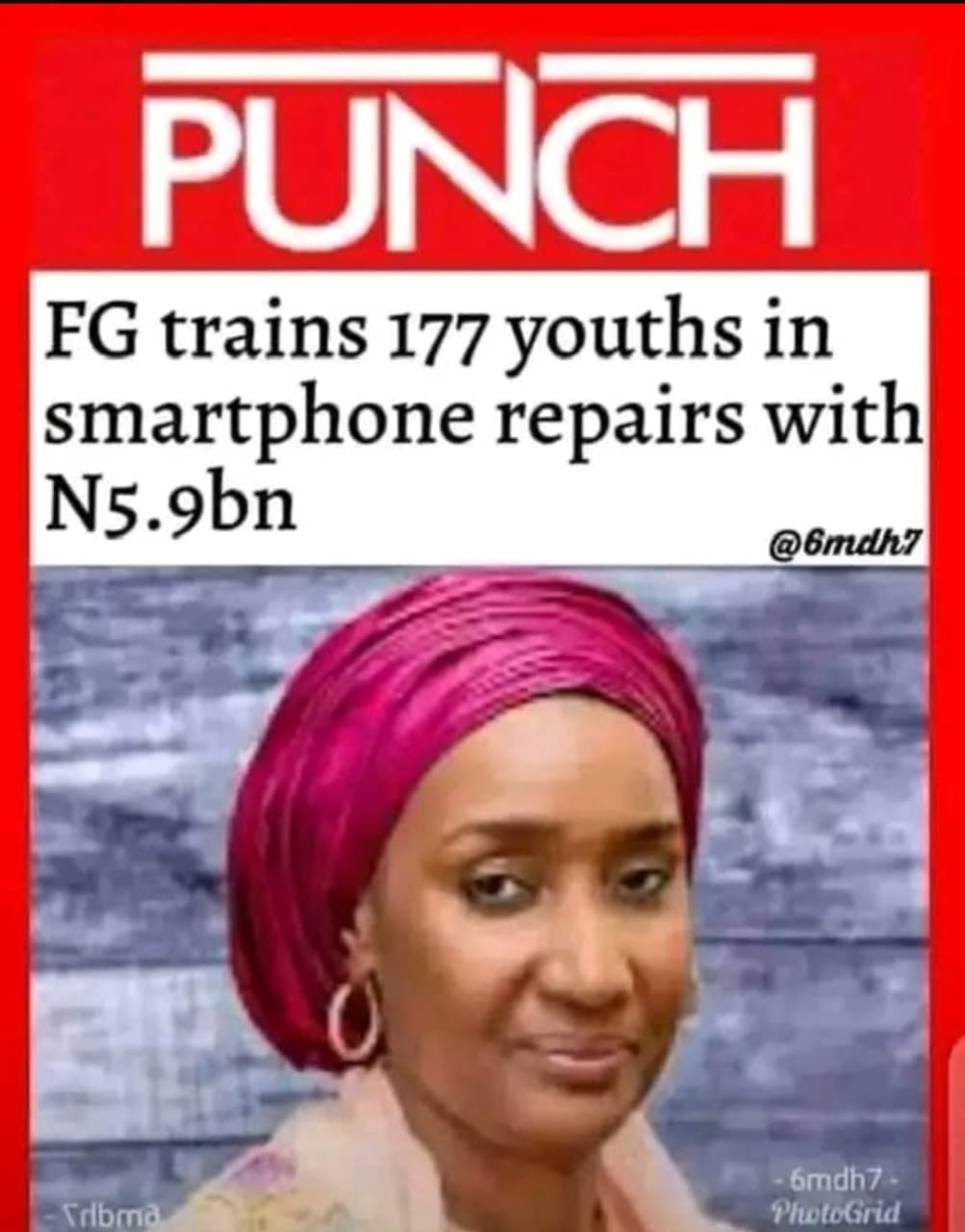
This blog post is about fact-checking the viral claim that the Nigerian government FG spent a whopping N5.9 billion to train only 177 youths in smartphone repairs. The claim was based on a fake graphic that looked like the front page of the Punch newspaper, one of Nigeria’s leading dailies. The graphic was widely shared on various social media platforms, such as WhatsApp, Instagram, and Twitter, and generated a lot of negative reactions and comments from Nigerians who accused the government of mismanagement and corruption.
Proof that The headline Photograph was A Fake
The Original Content

In the Punch Ng Newspaper, the article reports on the Federal Government’s investment of N5.9 billion in training, tooling and monthly stipends for the Batch C beneficiaries of the N-Power Programme in Kano State. The N-Power Programme is a social intervention scheme that aims to provide skills and employment opportunities for marginalized and disadvantaged youths in Nigeria.
The Punch Ng article focused on the closing ceremony of 177 youths who completed the training in Smartphone repairs and services under the N-Skills programme, a component of the N-Power Programme. The Minister of Humanitarian Affairs, Disasters Management and Social Development, Sadiya Umar Farouq, represented by the Special Assistant to the President on N-Skills, Dr Nasir Mahmoud, confirmed that about 16,629 youths were currently benefiting from the programme (under Batch C) in the state, while about 18,042 had already benefitted in the Batch A and B of the programme.
The Punch Ng Article Also Covered the Following…
The minister warned the N-Skills beneficiaries not to sell their starter packs, which included tools and equipment for smartphone repairs, but to use them to start their own businesses and become employers of labour. She also explained that the N-Skills programme was based on a certification system and accreditation of practical training provided through the informal apprenticeship system, anchored by Master Craft Persons and the formal training system, including using the Community Skills Development Centres in many States.

The article also mentions that the N-Skills programme accommodates many skills-based enterprises, and that Smart Phone Repairs was used to pilot the programme under the N-Power non-graduate component. The programme is designed to train, tool and transition marginalized unemployed youths into the labour market to gainfully be employed. The Ministry collaborated with technical service providers to provide the N-Skills training services to 6,475 unemployed youths across the Federation.

The article concludes by stating that the minister also presented a policy on the national home-grown school feeding programme, which is another aspect of the national social investment programme. She said the programme has improved the quality and relevance of skills delivered, and has also reduced the number of out-of-school children nationwide by providing them with daily meals and encouraging them to attend school. She said the programme has also provided significant socio-economic relief to poor and vulnerable households.
Checking if the Post and Photograph Was Doctored.

We decided to verify the claim and found out that it was false. The graphic was not a genuine product of the Punch newspaper, but a fabricated image that had a watermark of “- 6mdh – photogrid”. A google reverse image search revealed that the image did not appear on any official website or social media account of the Punch newspaper, but only on some random posts by individual users. Also, other genuine news sources also contacted the Ministry of Humanitarian Affairs, Disaster Management and Social Development, which is in charge of the N-Power programme, and a spokesperson from the ministry dismissed the claim as “fake news”.
Conclusion
In concluded, the the claim that the FG spent N5.9 billion to train 177 youths on smartphone repair was untrue, but a twisted version of a four-month-old report that was taken out of context. The article advised the public to be careful of fake news and misinformation, and to check the sources and authenticity of any information they receive on social media. The article also provided links to the original sources of the report and the graphic for further reference. The article also urged the government to be more transparent and accountable in its spending and programmes.
Read More
- How to Make Money Online With E-Commerce: Digital Success
- Nutrition Counseling and Support for Weight Management Success
- Nutrient-Rich Foods for a Nutrient-Dense and Balanced Diet
- HOW TO MAKE DELICIOUS AKARA: A STEP-BY-STEP GUIDE


